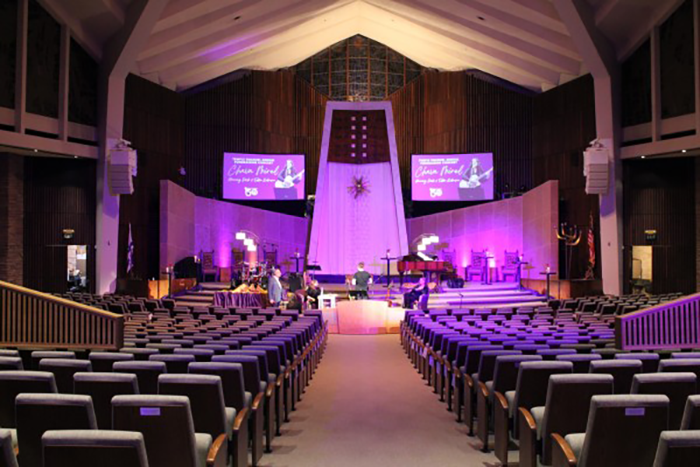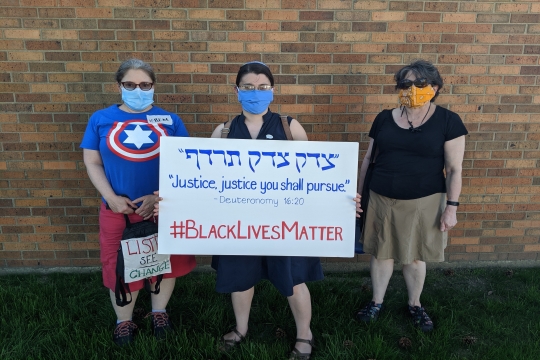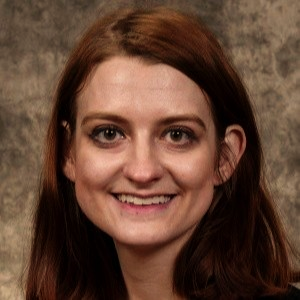
Established in 1874, Denver's Temple Emanuel is celebrating 150 years of heritage, harmony, and home in 2024. The congregation holds the distinctions of being the largest and oldest Jewish community in the Rocky Mountain region. We sat down with Senior Rabbi Joe Black and Congregational President Wendy Nekritz to discuss the congregation's history, impact on the community, and plans for the future.
URJ: What is a recent community initiative Temple Emanuel has been involved in?
Wendy Nekritz: At the end of 2022, Denver saw an influx of migrants who lacked basic needs like proper clothing for winter. Our Associate Rabbi, Emily Hyatt, spearheaded an effort to provide basic necessities. Sixty-two organizations sent volunteers to help us process donations, including 32 Jewish organizations. It was an interfaith effort and we served as the main hub. We processed and sorted more than 5,000 boxes of clothes and assembled over 53 tons of donations.
Rabbi Black: There was a point where our social hall literally had a 20-foot mountain of clothing. Maybe it was closer to a 10-feet… but I'm a rabbi, I exaggerate.
In May, Jewish Family Services honored us for our work welcoming refugees to the community.
How has Temple Emanuel impacted the Jewish community?
Nekritz: Temple Emanuel'salways been seen as a place where people can congregate, feel community, and be comforted with one another after tragic events.
Immediately after October 7th, our clergy team - with the help of other counseling professionals- held weekly open sessions where congregants could connect with our clergy and one another. In addition, Rabbi Black has led multiple educational sessions around Israeli history and our connection to Israel in the Diaspora.
Every Shabbat, we include a prayer for the State of Israel. During the , we've been adding names of the hostages, keeping them in the forefront of our thoughts and prayers.
How are you honoring your 150th anniversary?
Black: The three pillars of our celebration this year are heritage, harmony, and home. Heritage means that we are looking at our past and celebrating who we were and where we came from.
Music is a huge part of who we are, but harmony doesn't only mean music. Harmony is the way that we come together. We welcome every type of household and focus on our diversity. This is what makes us strong.
Our home is the idea that Temple Emanuel is our spiritual home, our legacy, and our community.
Nekritz: We've hosted a number of special guests. For example, we commissioned composer Michael Ochs to write an original piece of music based on the text of Psalm 150 in honor of our anniversary.
In addition, we were honored to have Rabbi Rick Jacobs at our annual meeting in March, participating and teaching our community.
We are offering two trips this summer, which will converge in the town of Kolin in the Czech Republic. The ark and Torah scrolls in our Feiner Chapel were salvaged from Kolin after World War II.
Black: The centerpieces of that chapel are nine pieces of furniture from the Kolin community. There's also a parapet above the ark, a carving of the Ten Commandments, a Torah holder, three chairs, and two candelabrums.
When the chapel was finished, we wrote to the Westminster Synagogue in London, England, where the Holocaust Torahs are kept. We asked whether they happened to have a Torah scroll from Kolin, and they did. So now, we have scroll #487 from the Czech Holocaust Memorial Torah Trust. We can't use the scroll because it's very fragile, but we take it out every Shabbat morning when there's a b'nei (bar or bat) mitzvah. When we have a group coming, we tell its story.
When we go to Kolin, we'll be celebrating nine students who will be becoming b'nei mitzvah in that synagogue. We considered bringing the Torah scroll, but decided it was too fragile. But we are bringing its cover.
Speaking of Torah scrolls, I believe that I read on your website that you're commissioning a new Torah scroll to celebrate Temple Emanuel's 150th?
Nekritz: That's right. We've commissioned Jen Kamentz, who is a soferet, a female scribe, to write a Torah scroll for us. There's only a handful of soferot in the country, and this will be this scribe's first Torah scroll. This keeps with our history of elevating women, focusing on egalitarian rights, and honoring the role women in our congregation.
Black: It was very important to us to commission a female identifying scribe. This will be the thirteenth Torah written by a soferet that has been commissioned for a congregation.
What are some projects you're looking at for the future?
Black: We're looking at how to be more affirming to Jews of Color, members of the LGBTQ+ community, and Jews living with disabilities. We had a major event on May 15: "Belonging and Becoming: A Community Conversation." We invited Rabbi Isaiah Rothstein, rabbinic scholar, public affairs advisor at Jewish Federations of North America, and the founder of Jewish Federations' JEDI Initiative for Jewish Equity, Diversity, and Inclusion; Dr. Sara Shapiro-Plevan, founder and CEO of the Gender Equity in Hiring Project; and Adam Pollack, chief program officer of 18Doors to host a conversation for our community.
Additionally, we have ongoing task forces and groups to find ways that, even as we celebrate our past, we can look to the future.
Related Posts

Addressing Antisemitism and Racism

Honoring Transgender and Nonbinary Community Members’ Infinite Value

